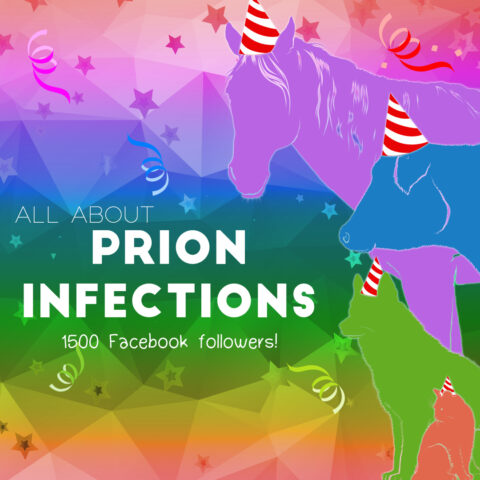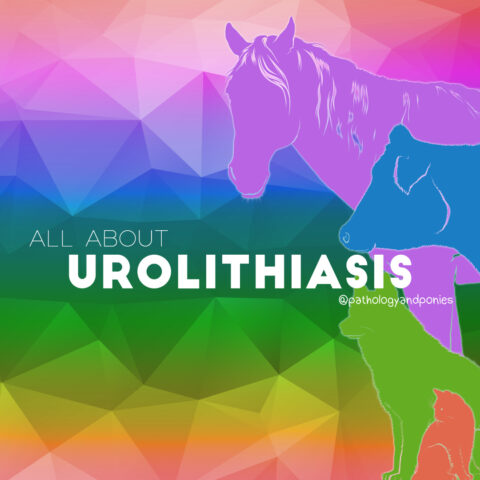




Today’s path rounds are on 𝐤𝐢𝐬𝐬𝐢𝐧𝐠 𝐬𝐩𝐢𝐧𝐞! Cause it’s Valentine’s Day ![]()
𝐖𝐡𝐚𝐭 𝐢𝐬 𝐢𝐭?
𝐊𝐢𝐬𝐬𝐢𝐧𝐠 𝐬𝐩𝐢𝐧𝐞 is more accurately known as 𝐨𝐯𝐞𝐫𝐫𝐢𝐝𝐢𝐧𝐠 𝐝𝐨𝐫𝐬𝐚𝐥 𝐬𝐩𝐢𝐧𝐨𝐮𝐬 𝐩𝐫𝐨𝐜𝐞𝐬𝐬𝐞𝐬. This is a big long term that basically means the dorsal spinous processes, the long bones sticking out of the top of the vertebrae, begin to contact each other. This can be very painful!
𝐖𝐡𝐨 𝐠𝐞𝐭𝐬 𝐢𝐭?
We most commonly see this in horses!
𝐖𝐡𝐚𝐭 𝐜𝐚𝐮𝐬𝐞𝐬 𝐢𝐭?
The exact cause of kissing spine is unknown, however it is considered to be an 𝐚𝐜𝐪𝐮𝐢𝐫𝐞𝐝 𝐜𝐨𝐧𝐝𝐢𝐭𝐢𝐨𝐧 (develops after birth) that may be related to poor saddle fit or improper training. Specifically, horses that tend to carry themselves with their head up and their back dropped and hollow seem to be predisposed to the condition. It is also possible that there are genetic factors at play, however this has not been confirmed.
𝐖𝐡𝐲 𝐢𝐬 𝐭𝐡𝐢𝐬 𝐚 𝐩𝐫𝐨𝐛𝐥𝐞𝐦?
As mentioned, having your spinal processes grinding up against one another is not a very fun time. Typically, this causes mild, low-grade pain for the horse, which can be very difficult to diagnose. These horses may buck, rear, toss their heads or kick out under saddle, may have issues with maintaining their gaits, and often have a back that is sore to the touch. In some severe cases, there may even be signs of lameness.
𝐇𝐨𝐰 𝐢𝐬 𝐢𝐭 𝐝𝐢𝐚𝐠𝐧𝐨𝐬𝐞𝐝?
Kissing spine is diagnosed through X-rays, showing the spinous processes being too close together. Ultrasound or bone scans may also be used to identify particularly problematic areas.
𝐇𝐨𝐰 𝐢𝐬 𝐢𝐭 𝐭𝐫𝐞𝐚𝐭𝐞𝐝?
Treatment for kissing spine can be either medical or surgical. Medical treatment involves pain medication and physical therapy to encourage the horse to reach forward and downward and lift their back, to bring the spinous processes further apart. It may also involve injection of anti-inflammatory medications into the area to help reduce or prevent inflammation and pain.
In severe cases, surgical treatment might be needed. The main surgical treatment complete is 𝐢𝐧𝐭𝐞𝐫𝐬𝐩𝐢𝐧𝐨𝐮𝐬 𝐥𝐢𝐠𝐚𝐦𝐞𝐧𝐭 𝐝𝐞𝐬𝐦𝐨𝐭𝐨𝐦𝐲, where the ligament that runs between each of the dorsal spinous processes is cut. This allows more movement between the spinous processes, which can prevent them from interfering with each other. However, this also makes the spine quite unstable, so may cause future issues down the road.
𝐏𝐡𝐨𝐭𝐨𝐬
1) An X-ray showing the spinous processes coming too close for comfort!
2-3) A before and after X-ray of a horse that had an interspinonus ligament desmotomy.
4-5) Examples of kissing spine as seen at necropsy.
𝐒𝐨𝐮𝐫𝐜𝐞𝐬
Young A. Kissing Spines. UC Davis Veterinary Medicine Center for Equine Health Health Topics 2019.
Garcia-Lopez JM. Surgical Management of Impinging or Overriding Dorsal Spinous Processes. Cummings School New Center 2019.
Claytom HM, Stubbs NC. Enthesophytosis and Impingement of the Dorsal Spinous Processes in the Equine Thoracolumbar Spine. Journal of Equine Veteirnary Science 2016; 47:9-15.
Turner TA. Overriding Spinous Processes (“Kissing Spines”) in Horses: Diagnosis, Treatment and Outcome in 212 Cases. Wound and Orthopedic Management AAEP Proceedings 2011;57.
Photo 1 © Tracy A. Turner.
Photos 2-3 © José M. Garcia-Lopez.
Photos 4-5 © Hilary M. Clayton and Narelle C. Stubbs.




